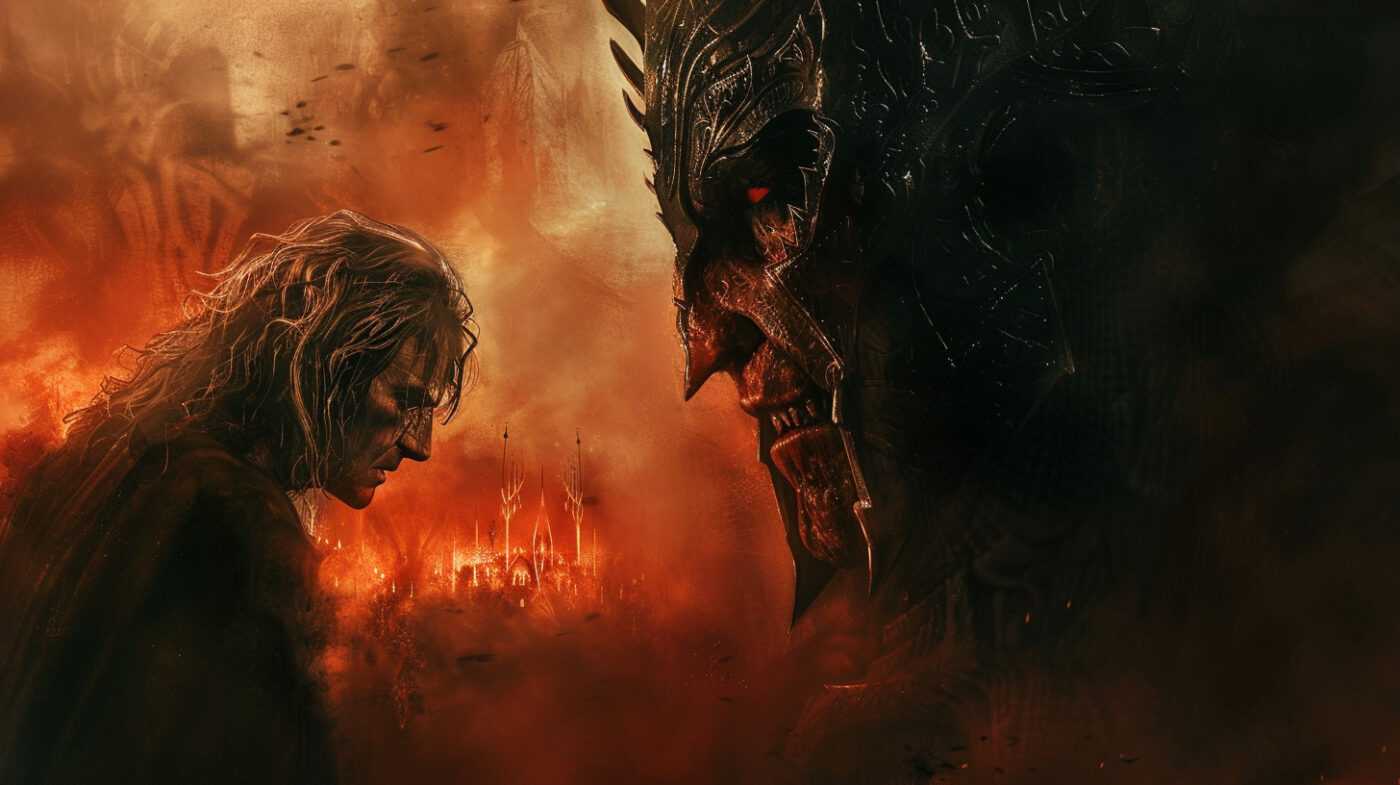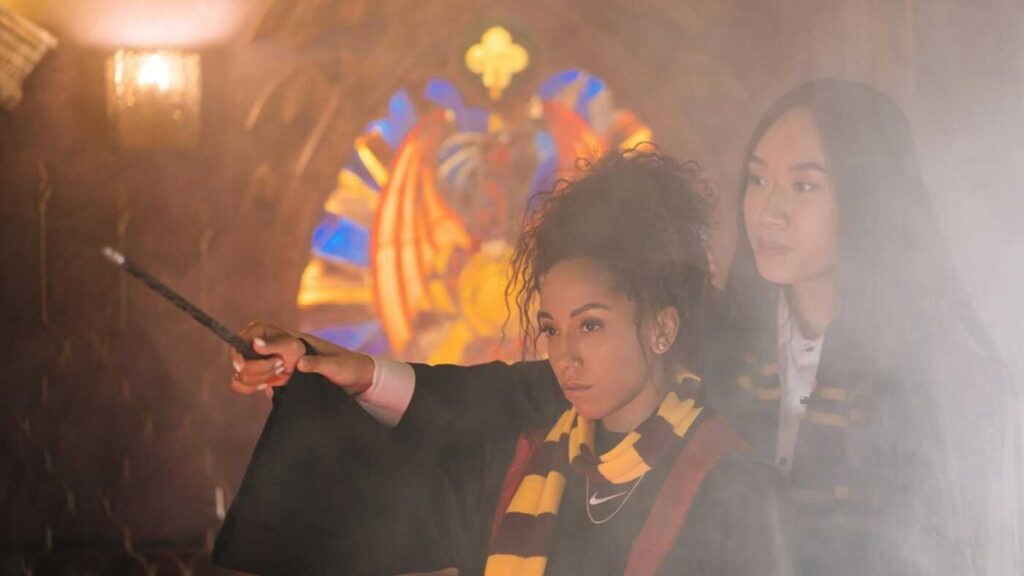Science
The Monk Who Saw the Future: Did an 11th-Century Benedictine Beat Astronomers?
17 February 2026

Modern adaptations of fantasy literature share a common trait – they tend to evoke negative emotions among fans of the original books. Productions featuring magic and swordplay are frequently criticized for deviating from the source material or overly yielding to the dictates of political correctness. Despite the controversy, fantasy films and series continue to generate substantial profits. Has frustrating fans become a marketing tool for media corporations?
As Andrzej Sapkowski notes in his essay “Manuscript Found in a Dragon’s Cave,” fantasy was stigmatized for years. The accusers included both representatives of the literary mainstream and conservative science fiction enthusiasts who viewed tales of elves and dragons as an inferior sibling to “serious” sci-fi. This discrimination significantly impacted the quality of television productions in the fantasy genre. Many of us likely remember the kitschy, albeit now nostalgia-tinged, series from the turn of the millennium, such as “Xena: Warrior Princess” or “Mystic Knights.” While capable of providing positive experiences, their quality left much to be desired. These productions seemed to confirm the oft-repeated stereotype that fantasy was merely infantile fairy tales for adults.
The collective perception of fantasy shifted with the successive premieres of Peter Jackson’s “The Lord of the Rings” trilogy between 2001 and 2003, which garnered a total of 17 Academy Awards. The transition of cinematic fantasy “from ghetto to mainstream” – to borrow the title of Katarzyna Kaczor’s book – was cemented a few years later by the early seasons of “Game of Thrones,” based on George R. R. Martin’s “A Song of Ice and Fire” series. Although the show’s quality noticeably declined over time (and ultimately plummeted), one cannot deny the significant role it played in television history. The creators of “Game of Thrones” demonstrated that televised tales of imaginary worlds could be produced with the same meticulousness and attention to detail as ambitious historical series.
In recent years, however, fantasy’s position has been visibly weakening, with small-screen productions in this genre often accused of reverting to their inglorious roots from the 1990s.
We recommend: How to Design Cities? Urban Planning Beyond Human Inhabitants
Today, the most controversial issues surround screen adaptations of renowned literary works, which often introduce significant modifications to plots, worlds, or character appearances familiar from the original books. For example (spoiler alert), one might recall the infamous second season of Netflix’s “The Witcher,” based on Andrzej Sapkowski’s prose. In the Łódź writer’s books, the Witchers’ stronghold – Kaer Morhen – is described as a place located in inaccessible mountains, known only to a select few. In Netflix’s series, however, the characters residing in the castle throw a feast, inviting prostitutes from a nearby brothel. On other occasions, protagonists traverse vast distances in mere days (without teleportation or other magical means of transport), and the main character’s friend – the witcher Eskel – is transformed into a monstrous leshy, generating further, rather unfortunate discrepancies between the series and the books.
Similar examples abound, not only concerning the adventures of Netflix’s White Wolf, which, incidentally, are set to conclude with the fifth season. Criticism has also been leveled at Amazon’s production “The Rings of Power,” loosely based on J.R.R. Tolkien’s works, and “The Wheel of Time,” adapted from Robert Jordan’s novel series of the same name. Their greatest sin, however, is not merely deviating from the original books, but a glaring lack of logic and narrative coherence. Such accusations could be easily dismissed if they pertained to low-budget productions. However, we are discussing costly adaptations like the aforementioned “The Rings of Power,” whose production reportedly cost a billion dollars.
In the case of contemporary fantasy series, a staggering budget often fails to translate into artistic quality. Although exceptions to this rule exist – such as HBO’s “House of the Dragon” or Netflix’s “Castlevania: Nocturne” – many creators of fantasy seem to believe that tales of imaginary worlds need not adhere to rules of internal plausibility and authenticity.

In one chapter of “Allotopias: Topography of Fictional Worlds,” Krzysztof M. Maj – a literary theorist and game studies scholar from the AGH University of Science and Technology in Krakow – drawing on the findings of American academic Linda Hutcheon, describes the phenomenon of realistic imperialism. The researcher applies this term to the long-standing dominance of realism in Western literature, art, and academic discourse. Consequently, many literary scholars and critics valued only works that depicted the real world and real people, such as non-fiction and post-realist novels. Fantasy was either dismissed as an element of mass culture or attempts were made to make it more realistic by categorizing individual works into genres such as magical realism. Conservative literary critics, however, overlooked that realism – like fantasy – is also a convention that does not fully capture the truth about reality, but presents it from the creator’s socially and culturally determined point of view.
Although fantasy literature is viewed much more favorably today than at the beginning of the 21st century, certain aspects of realistic imperialism have permeated popular series of recent years set in the magic and sword convention. The example of Netflix’s “The Witcher” shows that producers and showrunners often treat source material in a domineering manner. They subordinate the adaptation to the realistic paradigm, according to which stories about fictional worlds should primarily provide simple entertainment for mass audiences. Contrary to their literary originals, these productions usually present an extremely simplified vision of the world with a classic division between good and evil. In many respects, they resemble 18th-century pseudo-historical novels, whose authors treated the past solely as a backdrop for romantic plots, without concern for recreating the context of a given era.
We recommend: The Dark Side of Sport. When Physical Activity Harms
As with historical fiction, a well-crafted fantasy world should possess its own distinct flavor, which is notoriously difficult to translate into other media. Tolkien’s “The Lord of the Rings” simply does not suit the irony typical of postmodern cinema, just as “The Witcher” is ill-fitted for pathos and a lack of humor. Capturing this essence, however, requires an intimate knowledge of the adapted books and an ability to empathize with the story.
In an interview with VIP Multimedia, Jakub Szamałek – a crime novelist and former scriptwriter for CD Projekt RED – recalled that while working on the third installment of “The Witcher” game, he scoured Sapkowski’s books for information on the types of stones used to build the walls of Novigrad – a city where a significant portion of Geralt of Rivia’s in-game adventures unfold. This meticulous attention to detail contributed to the enthusiastic reception of “The Witcher 3” among both industry critics and fans of the literary original, translating into financial success for the production. As Maj argues, the artistic quality of fantasy depends on immersion – the ability to imaginatively plunge into a story about a fictional world and, through suspension of disbelief, momentarily accept it as a tangibly existing reality. Paradoxically, the main sin of contemporary fantasy productions is thus a lack of authenticity in the unreal, peculiarly understood.

The hypothesis mentioned at the beginning of the article about deliberately stirring controversy among fans of adapted works finds only partial confirmation. Another, perhaps more straightforward explanation for the artistic crisis in fantasy productions lies in economic factors and the desire to reach a broader – primarily younger – audience. From an economic standpoint, the goal of media corporations is understandable. Adaptations are created to generate profits and maximize viewer interest. However, attempts to tailor source material to the sensibilities and interests of younger generations often come at the cost of infantilizing excellent literary originals.
One of the most characteristic and harmful practices of corporations like Netflix or Amazon has become the phenomenon of “checklisting” – casting minority representatives in secondary or tertiary roles in fantasy series. Although this practice may be seen as promoting inclusivity – bringing minorities into the center of cultural discourse – its practical implementation leaves much to be desired. This is perfectly illustrated by the oft-cited “The Witcher.” In Netflix’s series, characters with non-white skin color or those with disabilities usually serve as a picturesque background for the protagonists’ actions. We do not learn these characters’ histories; their differences are either not thematized or serve only as clumsy metaphors. Thus, checklisting appears as a caricature of inclusivity.
We recommend: The Brain Likes What Is Known. Why Do We Regard People as Pretty or Ugly?
The controversies surrounding contemporary fantasy productions are a result of economic and marketing factors, but fans of the literary originals also play a significant role. While they have the right to expect the best possible adaptations of their favorite works, they often approach the final products with excessive criticism, frequently devolving into hate. Leah Sava Jeffries – the young Black actress portraying Annabeth in Disney’s “Percy Jackson and the Olympians” series – experienced this firsthand. Rick Riordan – the author of the literary original – came to her defense, not unjustly accusing “fans” of harassing and persecuting the teenage actress. Fan criticism often fails to consider the broader context in which individual productions were created, as was the case with Amazon’s “The Rings of Power.” Despite the staggering budget, the series creators were unable to secure rights to adapt J.R.R. Tolkien’s entire “Silmarillion.” Discrepancies between the book and screen versions of Middle-earth’s history were thus inevitable.
The negative reception of contemporary fantasy series demonstrates that in the era of late capitalism, engaging with fiction often ceases to bring the expected pleasure. A significant portion of the blame for this situation lies with media corporations which, in pursuit of profit, either disregard fan expectations or exploit them to generate marketable controversies. However, some responsibility also rests with the fans themselves, who sometimes approach innovations in adaptations of their favorite works with excessive criticism. Productions like the aforementioned “House of the Dragon” indicate that the trend is gradually changing, and corporations are beginning to re-appreciate the creative potential of imaginary worlds.
Translation: Klaudia Tarasiewicz
Read the text in Polish: Kryzys fantasy i wkurzeni fani. Czego brakuje dziś serialowym produkcjom o zmyślonych światach?
Science
17 February 2026



Zmień tryb na ciemny